In 1976, Polydor Records was actively considering signing the Sex Pistols. The label’s Chris Parry checked them out live in Birmingham during August. In September, he had a prime spot behind the mixing desk at the 100 Club’s punk festival from which to consider British punk rock’s figureheads. However, the band’s manager Malcolm McLaren signed them to EMI. Moving on, Parry began pursuing The Clash and recorded demos with them that November. They went on to sign with CBS.
Despite being led up the rock ‘n’ roll garden path by the Pistols and The Clash, Parry didn’t give up on punk and, following a tip-off from scenester Shane MacGowan, went along to Wardour Street’s Marquee on Saturday 22 January 1977 to appraise the support band. Bearded Lady, the headliners, had released their sole glam-stomper single “Rock Star” in 1975 and were past their sell-by date. Their support, The Jam, had a history too and, with various line-ups, were plugging away since 1972. The trio’s frontman Paul Weller saw the Sex Pistols support The Pretty Things and Supercharge at The Lyceum in July 1976 and knew music was changing. Although overtly indebted to the Sixties, The Jam had become fit for punk purpose.
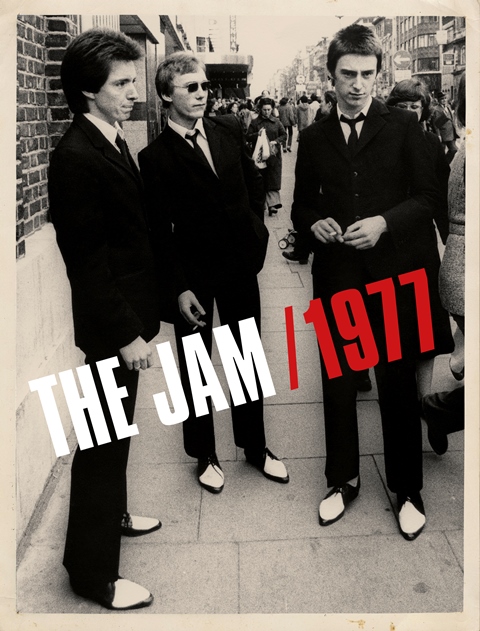 Chris Parry moved fast. There was no repeat of the time wasted with the Pistols and The Clash. He got The Jam to record demos on 9 February and signed them on the 15th of the month. Their first single “In the City” was in the shops on 29 April. The box set 1977 is dedicated to The Jam’s first year with Polydor.
Chris Parry moved fast. There was no repeat of the time wasted with the Pistols and The Clash. He got The Jam to record demos on 9 February and signed them on the 15th of the month. Their first single “In the City” was in the shops on 29 April. The box set 1977 is dedicated to The Jam’s first year with Polydor.
1977 collects newly remastered versions of the two albums they issued that year: May’s In the City (on Disc One) and November’s This is the Modern World (Disc Three). The In the City disc is supplemented by non-album sides from singles (inexplicably, the three live tracks from October 1977’s The Modern World EP are absent). Disc Two collects the full 11 tracks from the February demo (five tracks of which have been previously released) and Disc Four includes their two 1977 John Peel sessions along with a hitherto unheard live show taped at West London’s Nashville Rooms on 10 September 1977 (a show the following day at The 100 Club was also recorded and supplied The Modern World EP’s live tracks – a live album was being mooted by Polydor. This show was issued as part of the 2015 Fire and Skill set).
A DVD of 1977 film and television appearances, a book and five postcard-style prints of the band round-out the set. Manifestly, 1977 is no entry point into The Jam. A fan’s-only release, it offers the one-stop opportunity to hear how the band evolved over the year. It also offers the opportunity to hear exactly what Polydor heard when they signed the band.
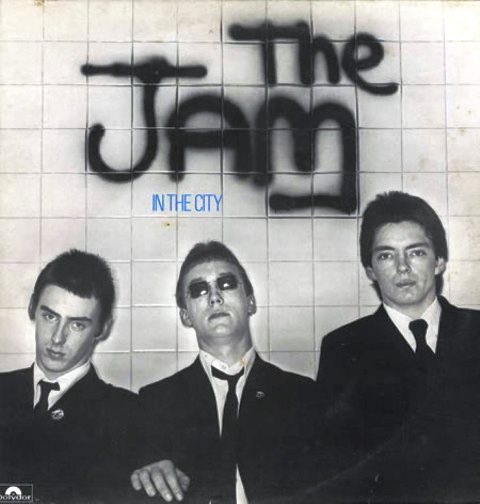 The February demos are rough. While the production is fine and must be taken as an accurate representation of the band at the time, everything about the playing is jagged: Rick Buckler’s smash-and-grab drumming, Bruce Foxton’s stabbing bass, Weller’s spiky guitar and spit-it-out vocals. Despite the presence of the relatively slow-paced “Sounds From the Street” and covers of “Slowdown” and “So Sad About us”, this is a band with a single-minded approach to delivering the goods.
The February demos are rough. While the production is fine and must be taken as an accurate representation of the band at the time, everything about the playing is jagged: Rick Buckler’s smash-and-grab drumming, Bruce Foxton’s stabbing bass, Weller’s spiky guitar and spit-it-out vocals. Despite the presence of the relatively slow-paced “Sounds From the Street” and covers of “Slowdown” and “So Sad About us”, this is a band with a single-minded approach to delivering the goods.
A comparison of the issued version of “In the City” and the demo shows how stock was subsequently taken to introduce light and shade into the band’s dynamic (fine-tuning also apparent from the Peel Session “In the City”). With the demos, Weller’s debt to Dr. Feelgood’s Wilko Johnson is more evident than ever. The raw version of “Takin' my Love", re-recorded to become the B-side of “In the City”, comes across as a re-write of their “She Does it Right”. Polydor must have seen the band as a work in progress.
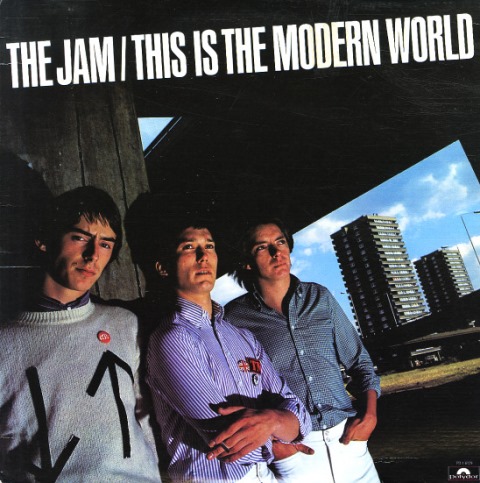 Similarly and to a greater degree, the live show on Disc Four is even scrappier. An unbalanced mix doesn’t help. Despite its sonic shortcomings, this is a powerful yet ragged show. Niceties and subtlety were set aside in favour of a breathless battering during which the band almost falls apart: throughout “The Modern World”, the instruments barely coagulate. At 01.23, during the break, the song almost falls apart. The show catches The Jam just before setting off on what proved to be a series of unsatisfactory American dates and raises the question of what audiences there would have made of them.
Similarly and to a greater degree, the live show on Disc Four is even scrappier. An unbalanced mix doesn’t help. Despite its sonic shortcomings, this is a powerful yet ragged show. Niceties and subtlety were set aside in favour of a breathless battering during which the band almost falls apart: throughout “The Modern World”, the instruments barely coagulate. At 01.23, during the break, the song almost falls apart. The show catches The Jam just before setting off on what proved to be a series of unsatisfactory American dates and raises the question of what audiences there would have made of them.
Intriguingly, the new remasters of each album are so crisp they unforgivingly reveal how the band and their producer held it together in the studio. Rhythm guitar overdubs dropped in to fill out the sound are clearly audible at 00.46 on “I’ve Changed my Address”, at 01.41 on “Slow Down” and, most glaringly, at 00.48 on “Takin’ my Love”. However, what remains clear is that despite the first being the better and more consistent of the two albums, This is the Modern World’s “Life Through a Window” and “Tonight at Noon” point to Weller and the band’s more nuanced, more reflective future.
1977 is a brave release as it does not offer a rose-tinted perspective of the past. The Jam hit the ground running but this was not and can never be seen as their prime year. From signing with Polydor they were, indeed, a work in progress. And, just as significantly, they are shown to have not been the world’s most natural punk rock band. They needed to slough off 1977’s harsh trappings and build on the mod outlook inherent in This is the Modern World's title and core to their identity if they were to flourish and become inspirational.
- Next week: the confusing On Air, a first-time official release of The Rolling Stones’ Sixties’ BBC recordings
- Read more reissue reviews on theartsdesk

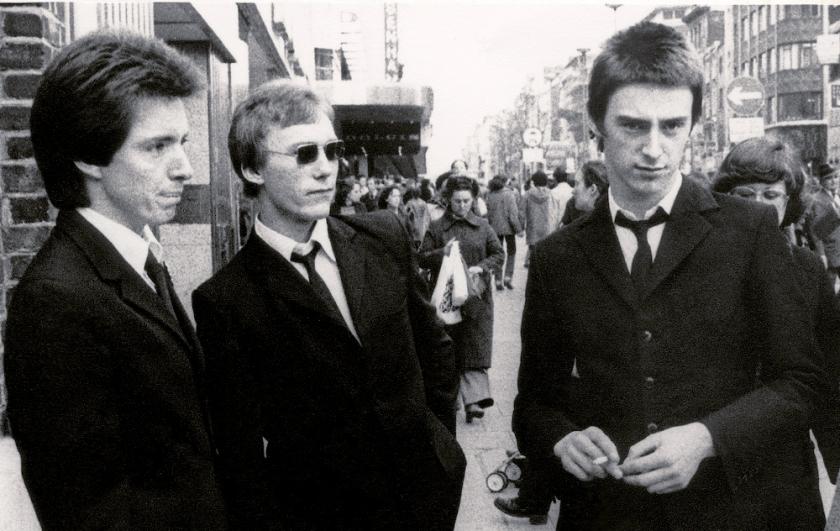












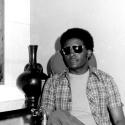
Add comment